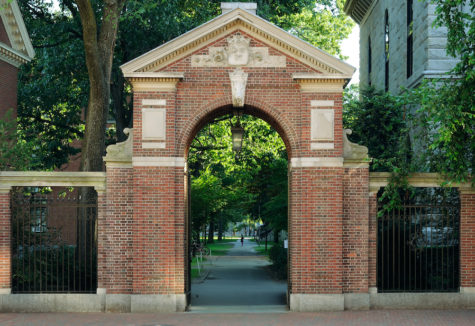- Blog
- > College Admissions
How COVID Affects Applying to College

The fallout of the ongoing public health emergency involving COVID-19 has thrown almost all industries in the United States into disarray, none more so than higher education. Colleges and universities have sent their students home, moved their classes online, called off admitted student events, and instituted hiring freezes on faculty and staff.
Meanwhile, however, the 2019-2020 application cycle is reaching its end, which means that the 2020-2021 cycle is just beginning. Across the United States, high school juniors were preparing to take their standardized tests, visit college campuses, develop their college lists, keep up their essential junior year grades, and apply to summer programs.
Now, that’s all on hold. The SAT and ACT have been cancelled through May (if not longer). Colleges have called off spring visits and are beginning to do the same with their summer programs. AP exams will be online and greatly modified. And many high schools have opted to not teach new content, focusing solely on enrichment and using pass/fail grades.
Understandably, this has created a lot of anxiety among college-bound students. But while we don’t know exactly what will happen, we do know this: everything will be fine. However this situation plays out, it’s clear that admissions officers will adapt their expectations.
A Short List of Things Not to Worry About
Below we’ve put together everything you need to know about the major disruptions in your college application process (and why everything will be fine!):
Visiting Schools
This is probably the biggest disappointment of the spring. Thousands of students across the country were planning to use their spring breaks to visit colleges, attend information sessions, go on tours, attend classes, and more. Obviously, social distancing restrictions and stay-at-home orders have quashed all of these often exciting and informative events.
While nothing can replace visiting a campus, there are still plenty of things you can do! Many colleges offer virtual tours, and many schools are starting to implement online information sessions or other virtual events to help you learn about them. Remember, these events are colleges’ prime chance to advertise themselves to you and convince you to apply! They have every incentive to figure out some way of helping you “visit” them.
Similarly, you may have heard that colleges rely on visits to gauge prospective students’ interest, and use that “demonstrated interest” in their decision-making. It seems clear now that they will not be able to rely on this “demonstrated interest” data this year, thanks to the coronavirus outbreak. So fear not—you won’t be penalized for not visiting, because no one can visit!
Standardized Testing
The COVID-19 emergency began right in the middle of March; if you were signed up for the March 13 or March 14 SAT, you probably remember it very well, as cancellations moved slowly and then suddenly very quickly! The College Board cancelled the March SAT test dates, then the May dates, and the ACT did the same. While initially they promised make-up dates, it is now clear that students will not have the same ability to test as before.
Given what an important part of the application standardized tests are for many schools, you may be freaking out about this. But bear in mind: every high school student in the country and the world is in the same boat. Everyone is going to have fewer opportunities to take the test. Test dates may be added, but that’s by no means guaranteed. And it’s already evident that colleges understand the position this has put students in.
A number of schools have become “test optional” for next year, and more announce the same every day. In fact, the University of California system just announced that standardized tests scores are no longer required for students applying in 2020-2021. Meanwhile, Harvard University has changed their language on SAT Subject Tests; they now say these tests are completely optional, rather than recommended. It’s likely that other schools that “recommend” the subject tests will follow suit.
Coursework & Grades
In a normal year, admissions officers tend to care a lot about high school juniors’ spring grades. It’s the last full year of your academic performance that they see before making a decision, and having an upward trend can significantly boost your chances of admission. Now, however, many students will only have Pass/Fail grades to show for this spring.
The first thing to remember is: it’s not just you. Schools across the country are turning to online enrichment, pass/fail grades, and limiting their content in order to equitably serve their student populations. The once-frantic pace of junior year has slowed for everyone.
The truth is that we don’t know exactly what colleges are going to do with this information, only that they can’t penalize you for decisions your school made, and that they are going to have a lot of applicants in the same boat. Most likely, they will have to rely more heavily on what you’re able to do senior year: both academically and in your application essays. Hint: this means that application essays are far more important than ever before.
Extracurricular Activities
In addition to disrupting academic progress, school cancellations have also affected high school students’ clubs and other activities. Across the country, school events have been cancelled, volunteer positions limited, and competitions postponed indefinitely.
Given that colleges care what you do with your time when you’re not in school, this has obviously been a blow to students who were looking forward to competing with their Model UN team or embarking on an important service project. But, again, this has affected all high school students, so you will not be disadvantaged come next winter.
Instead, colleges are likely to want to know what you did during this period, given that your usual activities were unavailable. Did you help your family or your community? Did you find ways to stay connected to friends and teammates? How did you contribute? Highlighting what you’re doing now in your college resume and college applications will be particularly necessary.
Summer Plans
Lastly, it looks increasingly as though summer plans of all sorts—from residential programs on college campuses to research internships to summer jobs—will be cancelled or diminished for many high school students. This can be extremely disappointing, particularly if you were planning something that would be a real feather in your application cap.
If this describes you (and it probably does, because it is extremely common!), fear not. There are still back-up options, such as online college classes or virtual service, that you can engage in over the summer. If you had a job or internship planned, it’s worth reaching out and asking what you might be able to do remotely to stay in the position.
Admissions officers won’t hold it against you that you couldn’t do the impossible and attend cancelled programs or intern at a shuttered lab. Rather, they will have to focus their energy on evaluating your other summer project: your written applications.
What You Can Do Now
So, if college admissions officers can’t use their normal metrics—demonstrated interest, junior year grades, standardized test scores, and extracurricular resumes—what will they use? Well, to start, they’ll still have everything from before March 2020, which they can evaluate. And, hopefully, they’ll have the first part of your senior year to use, too.
Nevertheless, it’s clear that admissions officers will have to change their approach this year. Many have already downplayed standardized testing, and their GPA calculations will be all over the place. At the end of the day, colleges simply will not be able to evaluate what you’ve done in the way they normally would. They’re ultimately going to have to put more weight on what you want to do in the future and where they fit into your goals.
What does that mean? Without the usual metrics, admissions officers will use what they have: interviews, recommendations, and (above all) application essays. These factors always matter, but this year they’re likely to be even more important. In particular, your essays—both your personal statement and your supplemental, school-specific essays—are likely to be the most crucial factor in admissions officers’ evaluation of your application.
So, while you’re at home helping your parents, entertaining your siblings, keeping up with your friends on Zoom, supporting your community’s health efforts, and staying sane, take some time to consider where you’ve been and where you want to go. This year, more than ever, colleges will want to hear exactly what you have planned for the future, once all this has passed.


